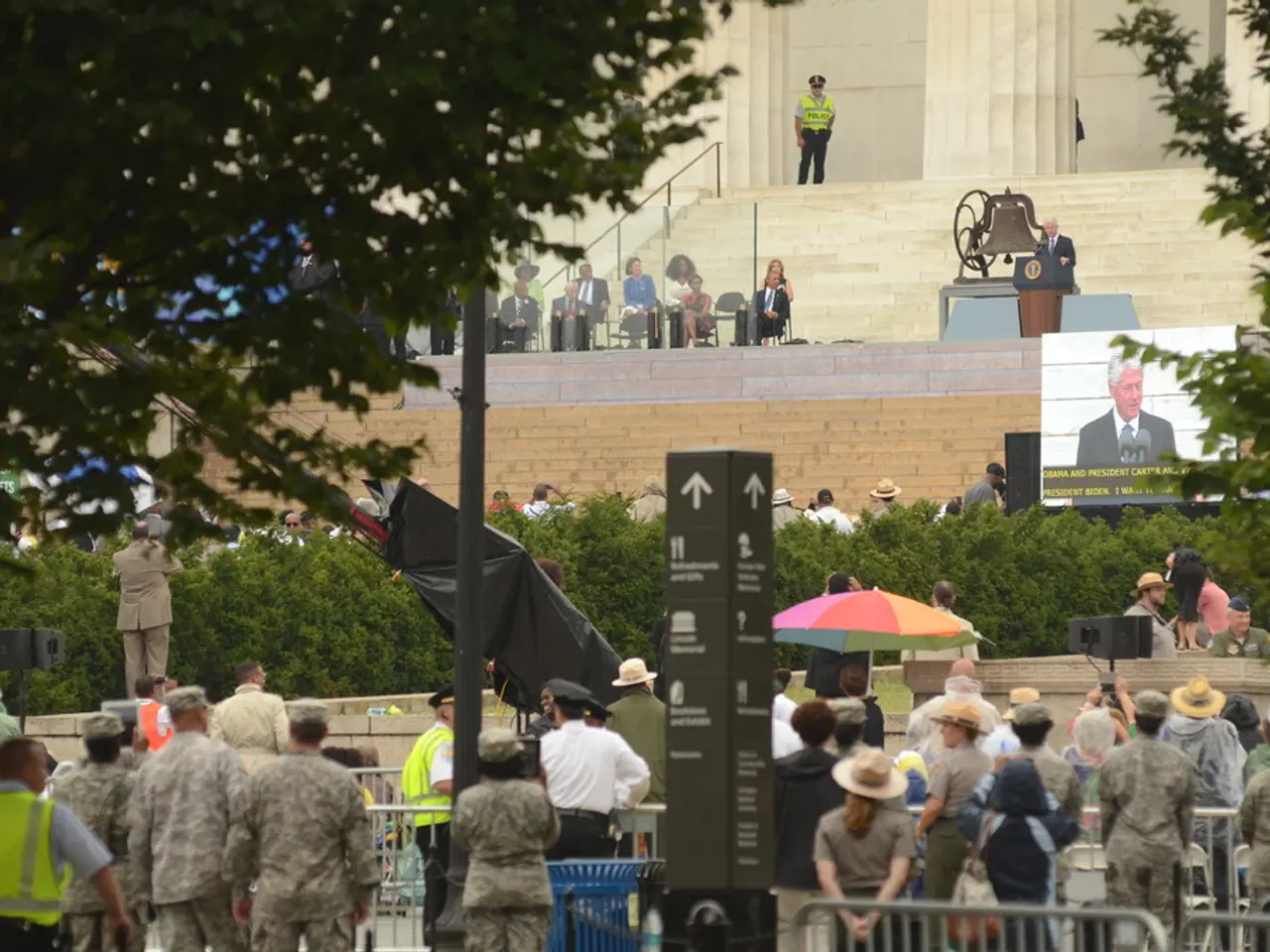Trump's Political Momentum Slows Down?
In the realm of international politics, the Trump presidency's approach towards Russia and Ukraine was marked by a unique blend of support and controversy.
While the U.S., under Trump's leadership, provided arms shipments to Ukraine, including advanced missile systems in coordination with NATO allies, the administration simultaneously sought closer relations with Russian President Vladimir Putin. This dual strategy was criticized for siding with Russia in the 2022 invasion of Ukraine, with Trump's team offering concessions to Russia and suggesting that Ukraine bore partial responsibility for the conflict, drawing criticism from U.S. allies and international organizations.
Trump's foreign policy was characterized by a desire to exert control and influence daily. The arms shipments and sanctions against Russia were intended to demonstrate military support for Ukraine against Russian aggression, and to enforce negotiations for peace, respectively. However, the administration's conciliatory approach towards Moscow was seen as offering concessions to end the invasion of Ukraine, reflecting a more transactional approach to Moscow.
This ambivalence was widely criticized by U.S. allies, international institutions, and experts who saw Trump’s policies as undermining a unified Western front against Russia’s aggression. The Trump presidency's approach was not in alignment with the current global power structure, as it was rooted in a belief in the U.S.'s historical dominance and the need to maintain that status. However, the times of such U.S. dominance are considered to be long past.
The negotiations Trump is proposing involve Russia and Ukraine, and have a specific timeframe of ten to twelve days. The U.S. under Trump's leadership continues to assert its authority over global affairs, with the President viewing the country as the world's superpower with the authority to give orders, reminiscent of the post-World War II era.
However, this approach is met with resistance, as the times have moved beyond the post-World War II era. The Trump presidency's foreign policy towards Russia and Ukraine combined military support and sanctions against Russia with diplomatic gestures favoring Russia and assigning blame to Ukraine, resulting in mixed signals and criticism that arguably complicated the U.S. role in countering Russian aggression.
In a separate but related development, the bombing of Iran, a controversial action in the global community, has resulted in mass slaughter within Iranian prisons. Donald Trump views himself as a war leader following the bombing of Iran, a stance rooted in his belief in the U.S.'s historical dominance and the need to maintain that status.
[1] ABC News. (2019). Trump's Ukraine policy: A timeline of events. [online] Available at: https://abcnews.go.com/Politics/trumps-ukraine-policy-timeline-events/story?id=66762287
[2] The Washington Post. (2019). Trump's Ukraine policy: A timeline of events. [online] Available at: https://www.washingtonpost.com/politics/2019/10/03/timeline-trumps-ukraine-policy/
[5] The Guardian. (2019). Trump's Ukraine policy: A timeline of events. [online] Available at: https://www.theguardian.com/us-news/2019/oct/03/trump-ukraine-policy-timeline-impeachment-inquiry
- The Trump administration's foreign policy towards Ukraine and Russia, marked by a unique combination of military support, sanctions, and diplomatic gestures, has been a topic of intense debate in war-and-conflicts, politics, and general news realms, with critics arguing that it has complicated the U.S.'s role in countering Russian aggression.
- The bombing of Iran, a controversial action in the global community, has led to mass slaughter within Iranian prisons. This action, advocated by Donald Trump, is a clear embodiment of his belief in the U.S.'s historical dominance and the need to maintain that status, placing this event squarely in the realm of war-and-conflicts, politics, and general news discussions.








